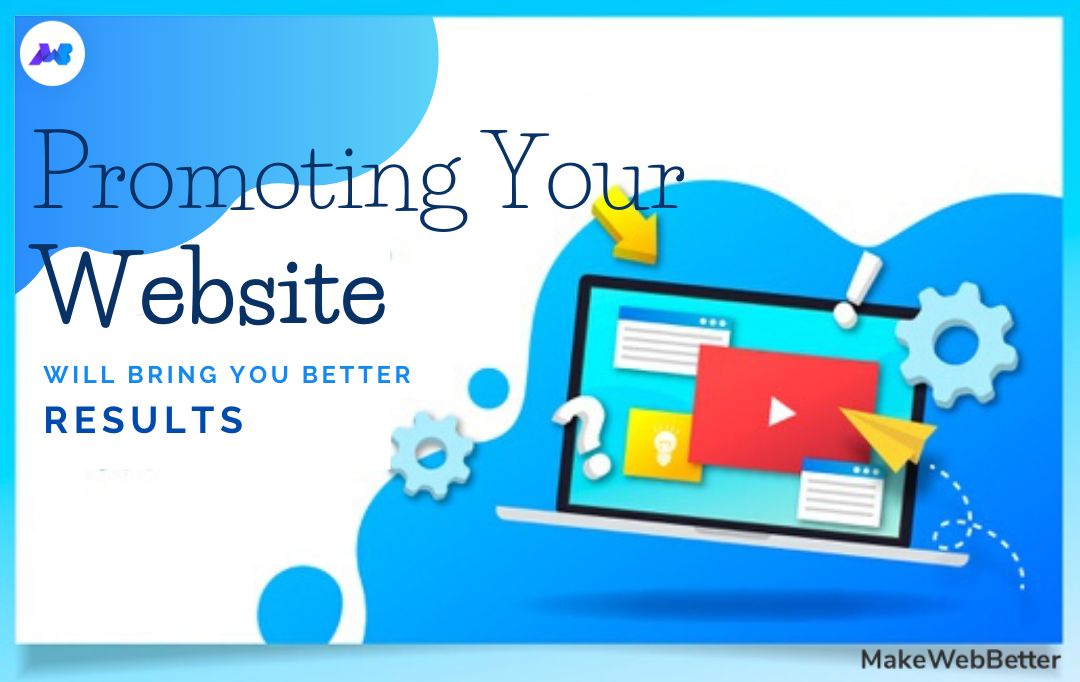If you are a merchant who owns an eCommerce store or you are a marketer looking to promote your eCommerce website, you might have found many blogs or cheatsheets to get 10X results or million dollars of revenue. You might have also implemented several processes and/or tools, spending all your profits into running campaigns.
Neither I claim such cheatsheets or million-dollar revenue processes to be fake. Nor I’m going to discuss any unrealistic claims or unreachable goals here. But with all the experience I have, I can definitely claim that promoting your eCommerce website requires 100% precision and risk-bearing confidence not your 100% of profits.
Our objective is always targeted towards better returns and growing revenue scales. But we don’t know exactly what process or tools to use to reach that goal. So, here in this blog, I’m sharing the 8 easy ways that have provided fruitful results to my promotion journey.
8 Ways To Promote eCommerce Website
-
1. Search Engine Optimization (SEO)
To promote an eCommerce website, you really need to snuggle up with traditional SEO benefits. SEO or search engine optimization is not just a mere term or concept that will give you immediate results. Rather, it works closely on the path of Google Algorithms to provide a strong sustainable environment to your website. SEO Trends are fragile to Google Algorithm Updates and hence listing your website on Google in various forms certainly helps to promote it further.
-
1. Google SERP Listing
Ranking on Google organic results isn’t that easy for all but isn’t tough too if you know the right ways. Optimizing the content, titles, tags, descriptions, images, and everything that you use on your Website will take you a step further. Since, WordPress offers a ton of plugins to support your SEO needs like Yoast SEO plugin, etc. Such plugins help you create SEO-friendly content. They also put forward guidelines to be considered when you are creating titles and meta-descriptions to properly utilize your focus and related keywords. While making it more readable for humans in a pleasant manner.
-
2. Keywords Research
This is yet another but very important aspect when we talk of SEO. To promote your eCommerce website organically, you need to use the most relevant keywords for the purpose that have high search volume and low competition. Keywords falling in such criteria are easy to rank and hence, higher ranking promotes organic traffic to your eCommerce website.
-
3. Google Local Business Listing
While expecting traffic and engagement from overseas, you must also look out to increase the local audience too. Google helps you out in every sphere to promote your website, it’s just the right step at the right time. Therefore, you must submit your website on Google Local Business. After creating an account and listing your business for the local audience, you also have options to upload related information like address & contact details, pictures, mobile ads, and promotional offers, etc. Google dedicatedly provides better promotional ideas and advice for a larger online presence.
-
4. SEO optimized content
Your content ranks your website, the better content is proportionate to better ranking. Hence, generating quality content under SEO specifications will give you better opportunities to rank on search engines and promote your eCommerce website organically.
-
-
2. Content Marketing Strategy
You must be certain now on how important is the quality content that is SEO optimized. But while you plan your content strategy, you must be considerate about your content type. Text-based content is often preferred like blogs, guest posts, product descriptions, and specifications. Lately, video content is also gaining a heavy attraction. It is hence recommended to follow the criteria while you work on your content marketing strategy to promote your eCommerce website, i.e.,
- Analyze your audience and type of content they prefer
- Decide the type of content you need to focus on post analyzing the information.
- Enlist the platforms to target your potential audience, i.e., onsite/offsite, LinkedIn pulse, medium, YouTube, etc. depending on your content type.
- Generate high-quality, SEO & keywords optimized content.
- Popularize or market your content.
-
3. Link Building And Reciprocating Grows Trust & Authority
To bring in organic results, you do need great content and optimized SEO. But adding authoritative external links acts as a catalyst in improving your page authority. Exchanging links with high-quality and high-ranking sites that are relevant to the readers, results in search engines reward you better.
-
4. Social Media & Paid Marketing
Creating an account on social media, building connections, expanding your network, and sharing information is the most authentic and preferred way to promote eCommerce website. Social media platforms are transforming the online marketing trends. Having a social media account provides you an opportunity to advertise your business to the ideal audience. Not only it helps in promoting your website, but it also helps you in building your brand image. On the other hand, you can take the Google Ads platform too to promote the eCommerce website. Google Ads is a multi-disciplinary platform, offering varied options to build an Ad campaign for your preferred choices and needs like Search Ads, Display Ads, Text Ads, etc.
-
5. Email Marketing Is The Old School Yet Effective Method
A WordPress website works well in driving traffic from the emails. Since every other marketing results fluctuate with time, Email marketing provides stability while increasing the recipient’s list and access to the wider audience. It gets easy to take follow-ups and nurture the returning customers properly through their email addresses. Start your email campaign and keep adding the new subscribers to your website. Also, it helps in keeping your customers informed about your upcoming offers and events. Hence, promoting your eCommerce website activities to all your subscribers.
-
6. Online Directories Provide Wider Reach
Remember how in olden times people used to carry telephone directories so that they can contact the person wherever and whenever required. Online directories are somewhat similar in nature. Listing your eCommerce website on online directories implies the presence of your sites like – Press Release websites, social media platforms, content promotion websites, review websites, etc. These publication sites give you a wider audience and visibility. Hence, an indirect approach to promote eCommerce websites.
-
7. Add Signature To Your Branding Efforts
Your branding is the face of your business because your customer recognizes you from it. Obviously, there are many methods and ways to brand your products and website. Branding promotes the eCommerce website and customer loyalty as well. The one easy and best practice is to add a digital signature to your emails, texts, and postings on forums and communities.
-
People have started using electronic signatures more frequently because of their help with branding. Often people remember the branding efforts like logos, signatures, etc. Anyway, that can help you in linking your website URL to your branding efforts is worth implementing.
-
8. Websites’ UI/UX Is The Core, Don’t Neglect It
Your overall site experience can make or break your visitors. Providing the look and feel that best relates to your core business values and ideology will attract more customers towards you. The three major points that control the UI/UX for your website are –
-
1. Website structuring
The first and most important thing is your site structuring. There is no restriction to have only a certain number of webpages. You can have as many webpages as you require. But, their structuring on the website and proper navigation matters. The pages are of no use if your visitor/customer gets lost in the stack of pages. Also, proper navigation and structuring are preferred by Google while crawling your website.
-
2. Themes
Showcase your vision and values to your customers and let them relate to it for better bonding and lasting impressions. Hence, you must lookout for the WordPress themes that may help your visitors to visualize the purpose of your website. Because providing a great user experience encourages the visitor to roam about on your site and explore for a longer duration.
-
3. Plugins
WordPress Plugins are simple scripts developed by software experts to extend the functionality of an eCommerce Website or any website of matter. There are plugins available in WordPress to serve all your needs because extended functionalities like SEO managing, Email Marketing, etc, ultimately help you promote eCommerce website.
-
I know you’re all set to implement these 8 methods ASAP! To promote your eCommerce website. But still, if you have any doubts or concerns or else if you are looking out for a marketing agency to help you promote your website, you are most welcome to discuss with us either in the comments section or connect with us @MakeWebBetter.









Great,
I suggest to consider the CPA affiliate network as a big money source, so you can join any one, for example:-
peerfly, mostCPA, clickdealer,…etc
Remarkable things here. I’m very happy to peer your post.
Thanks a lot and I am talking a look ahead to contact you.
Will you please drop me a e-mail?
Thanks for the kind and appreciating words! I’d surely like to connect. Check your mailbox though 🙂